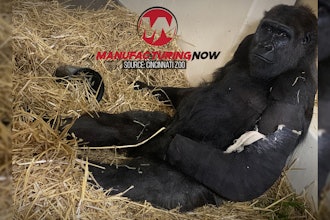WASHINGTON (AP) — With the holiday shopping season fast approaching, a top Bush administration official provided some common-sense advice for parents worried about the safety of the overwhelmingly foreign-made toys available on store shelves.
''Buy from people you trust,'' said Health and Human Services Secretary Mike Leavitt, as the administration unveiled two broad initiatives designed to improve the safety of the $2 trillion in food, toys and other consumer goods imported each year.
Beyond trust, the plans propose allowing foreign makers of consumer products to seek voluntary certification that they meet U.S. product safety standards in exchange for expedited entry into this country. Similar certification could be required for imported foods at risk for contamination, such as farmed fish, under the plans.
The plans were developed in response to a spate of recalls over the last year involving not only toys decorated with lead paint but also drug-contaminated fish, toxic toothpaste, chemically spiked pet food ingredients, leaden novelty jewelry, defective tires and other goods.
How to pay for the proposals laid out in the plans remained unclear.
President Bush said the United States benefits from having an open market and a huge variety of products from across the globe.
However, he said: ''We need to do more to ensure that American families have confidence in what they find on our store shelves. They have the right to expect the food they eat, the medicines they take or the toys they buy for their children to be safe.''
Acting on recommendations from an advisory panel, Bush proposed that the FDA be empowered to order mandatory recalls of unsafe food products. Currently, the FDA lacks such authority, even when the public health is at risk.
''Specifically, the FDA would be empowered to order a recall when a company refuses to recall their product voluntarily, or moves too slowly in removing the unsafe product from the market,'' Bush said.
The problems of the past year, like pet food ingredients spiked with the chemical melamine, won't necessarily go away once the plans are put in place, FDA commissioner Dr. Andrew von Eschenbach said. But the government should be able to better respond to eliminate or mitigate any threat when it does crop up, he said.
''Will there still be potential problems, where people who intend to do harm or by other circumstances something slips slip through? Yes, that's still going to be a possibility. That's why we're stressing response,'' von Eschenbach said of the FDA's food protection plan, which in large part revives a 2003 agency plan that has languished in draft form.
''This plan addresses both imported and domestically produced food and will strengthen the FDA's ability to coordinate with other federal agencies to protect our food supply,'' the president said.
A watchdog group said the public would be better served by a single food-safety agency — a move sought by some lawmakers as well.
''Blandly calling for 'enhanced cooperation' between FDA, USDA and other agencies is unlikely to bring about the same kind of efficiency that a single strong food safety agency would,'' said Sarah Klein, a food safety attorney at the Center for Science in the Public Interest.
Leavitt said the United States has ''among the safest food supplies on the planet. It's not perfect. We can get better. But we're very fortunate to live in a place where these problems are discovered quickly and responded to.''
Bush also proposed increasing the presence of U.S. inspectors from Customs and Border Protection, the Consumer Product Safety Commission and other agencies in countries that are major exporters to the United States.
Bush's proposal drew some quick criticism.
Sen. Charles Schumer, D-N.Y., said the president's package ''leaves consumers in the dark and continues the hodgepodge of federal oversight.''
Schumer said the FDA and CPSC need more money to carry out their jobs, consumers need quick and accessible food and product safety information and better oversight is needed.
Indeed, it remains to be seen how much the plans will cost, Leavitt and other administration officials said.
More money for the FDA will be ''critical'' if the food protection plan is to work, said Cal Dooley, president and chief executive officer of the Grocery Manufacturers Association/Food Products Association.
''We will have very limited success in changing the level of safety of our food supply if we do not see additional resources provided to FDA,'' Dooley said.
The administration sees the proposed certification program — likened to a seal of approval — for companies with a proven track record for meeting safety standards as a powerful tool, since it could make certified suppliers more attractive to big retailers.
In addition, regulators would be able to concentrate on countries and companies that don't have a reputation for meeting certification standards.
''For many years we've relied on a strategy based on identifying unsafe products at the border,'' Bush said. ''The problem is that the growing volume of products coming into our country makes this approach increasingly unreliable.''
He said federal regulators now will focus on stopping dangerous products from reaching U.S. borders in the first place.
Other proposals would strengthen CPSC's authority by making it illegal for companies to knowingly sell a recalled product; by authorizing the CPSC to issue follow-up recall announcements, and by requiring recalling companies to report supplier and delivery information. Further, CPSC would be able to impose asset forfeiture penalties for criminal offenses.






















